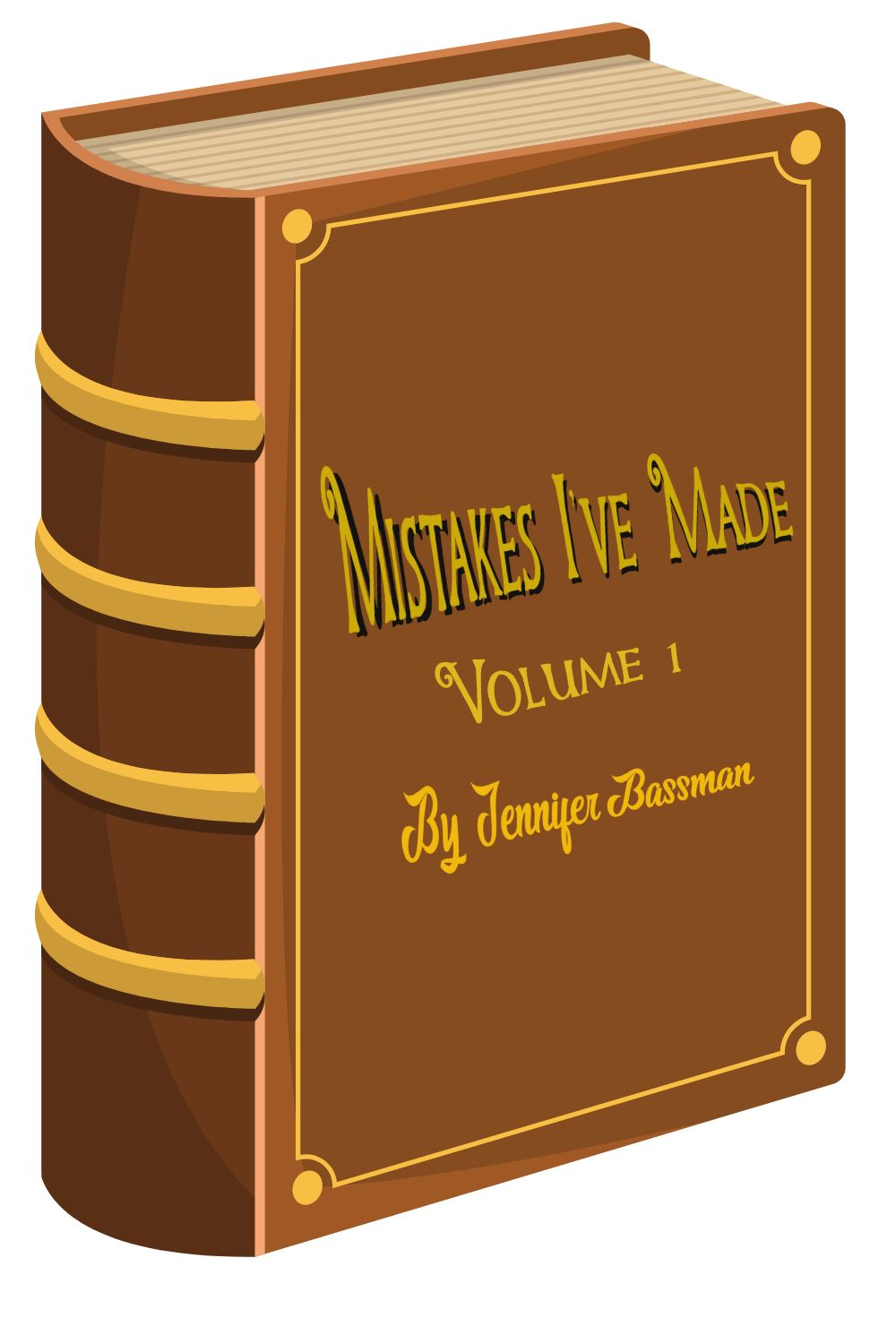I can still recall with excruciating, vivid detail a mistake I made in fourth grade.
Not only can I tell you what I did (presented on the wrong topic in a presentation to my class), I can tell you everyone who was present, and accurately describe the expressions on their faces moments before I blacked-out in the front of the classroom.
Although this happened nearly 30 years ago, it still haunts me by popping up in rolling memories from my childhood.
Not feeling like a boss these days? Download my guide, I Am a Boss.
I can guarantee you that the number of hours I spent ruminating over this mistake is the equivalent to at least an entire school year of time. (That’s a lot of time for a mistake made when I was 9 years old.)
Does anyone else remember it? Not that I’m aware of – it was never spoken of again after that week. Not even in hushed tones at my high school or college graduations, my wedding, job interviews, or even the many times I have been on a stage in front of an audience since.
It’s never even made a social media post, featuring a picture of me passed out in a puddle of embarrassment.
Here is what I have learned, understood, and accepted in the years since that ordeal: everyone makes mistakes. Everyone.
I even made thousands more!
The Weight of Mistakes
There is a reason why something was a mistake – is because you didn’t do it intentionally. Yet, the weight of that mistake that you carry around in your memory feels more like the equivalent of semi-truck.
The weight of mistakes comes from our natural desire to ruminate over them. Rumination is overthinking on steroids.
While we worry about something that may happen in the future – like actually showing up to work without pants – we mostly ruminate about events that happened in our past.
Ruminating about a mistake often triggers more embarrassing or painful memories of similar situations from the past, and you build a negative current perspective of yourself.
For example, “I’m such an idiot. I keep making the same mistake. I passed on a project three years ago that won awards, and I did it again this year.”
Our mistakes bother us because:
- Our inner critic likes to magnify mistakes, making them feel more significant than they are.
- We worry about how other people perceive us after we screw up.
- If you are a perfectionist, falling short of flawlessness puts a nick in that shiny armor.
Your feelings – embarrassment, shame, anxiety, and frustration – add fuel to the power of your mistakes.
Chronic Stress, Burnout and Mistakes
Mistakes can be incredibly stressful. Ruminating about a mistake adds to the stress.
For the burned out, mistakes seem never-ending and become the focus of your tunnel vision.
You’re making so many of them because the chronic stress that has taken over your brain keeps you from thinking clearly and correcting course.
It doesn’t help that when you experience burnout, your brain tends to focus only on the negative things around you, happening to you, or the errors of others. All you see are mistakes – or at least things you perceive as mistakes.
With this never-ending cycle of destructive thinking, come feelings that you lack control over any of it.
What you don’t realize, is the only mistake being made, is thinking that you can’t fix your mindset.
A way to make this shift when you’re burned out, is to ask yourself, “What’s the best choice right now, given the reality of the situation?”
Stop Ruminating About a Mistake – or All of Them
Ruminating about a mistake isn’t just uncomfortable. It leads to poor problem-solving, anxiety, and… more mistakes. This is because rumination distorts your thinking and can force cognitive errors.
For example, if you are a perfectionist, you have expectations and standards for yourself that are often unrealistic. So, you misinterpret other people’s expectations of you.
The last time that memory from fourth grade popped up, I decided it was time to make peace with it.
(I have so many other more recent, way worse mistakes that deserve my time and attention, right?)
There are five key steps to stopping the rumination cycle and letting go of mistakes:
- Acknowledge the Mistake. Hey, it happened and there’s nothing you can do to change that. But, you can change the way you think about it and allow it to affect you.
- Challenge Catastrophic Thoughts: Ask yourself, “Is this mistake truly catastrophic or the end of your reputation as you know it?”
- Shift Your Focus. Distract yourself with something else. Engage in an activity that redirects your attention away from the error. (Just don’t focus on another mistake.)
- Learn From It: Take the opening to view mistakes as an opportunity for growth than failure.
- Forgive Yourself: Understand that we all make mistakes. ALL OF US. It’s part of being human and experiencing life.
This doesn’t mean the memory will never return, but your feelings associated with memory of this mistake will be different and less powerful.
Mistakes Are Not a Sign of Weakness
Mistakes are not a sign of weakness – they are a sign of life.
They are a sign that you tried something, you took advantage of an opportunity, or you are simply just a human being.
Too often, admitting you were wrong or made a mistake, leads you down a dangerous path of defending poor choices, blaming the wrong person/people, and wrecks your reputation.
Unfortunately, this happens with leaders often. In their minds, it’s a way to save face or retain respect for their intelligence. Or, even innocently, they believe that as a leader they are supposed to be perfect.
Ultimately, they lose the respect of others, don’t accomplish their goals, and lose the trust of their team.
I’m describing myself. When I began my first business, my perfectionism when into overdrive. I thought I had to know it and do it all. Mistakes would lead to the perception that I was a failure or didn’t deserve to own a business. My pride, my fears, and my insecurities nearly sank me and sank my business.
My trajectory changed the moment I dropped that way of thinking and took accountability for my mistakes (and failures.)
It began by simply apologizing and acknowledging my mistake, as well as, not make any excuses. It happened – I screwed up. What mattered now was how I fixed it.
The kicker? I felt stronger by admitting to and taking ownership of my mistakes.






